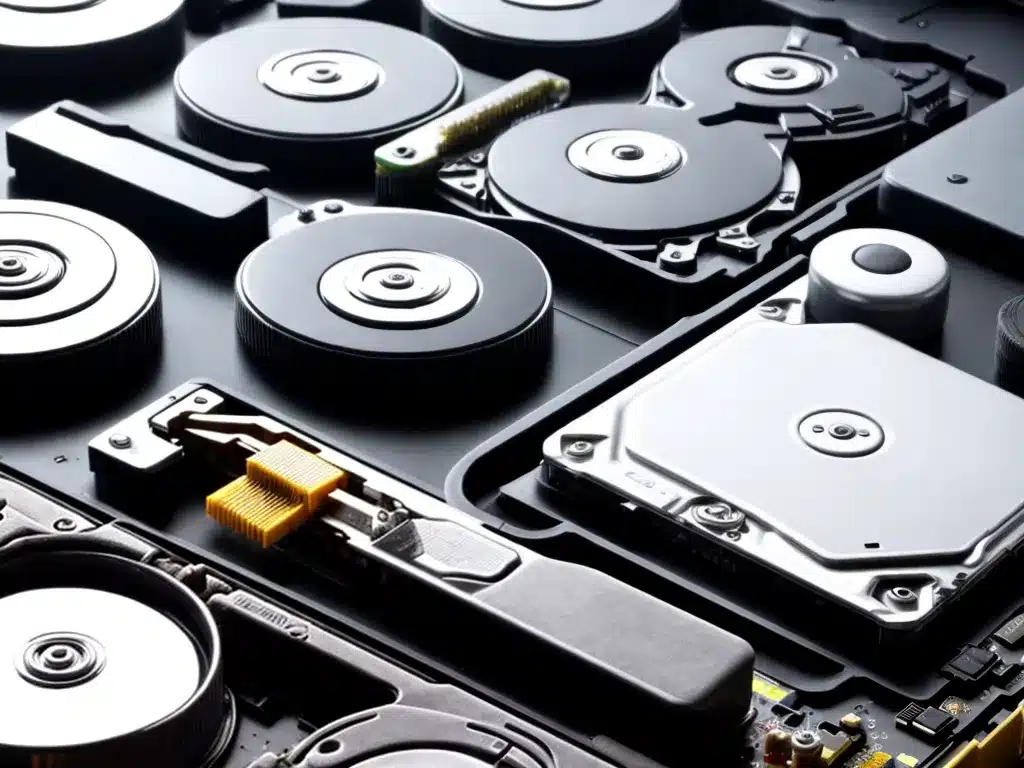

A slow computer can be incredibly frustrating. As your computer ages, it accumulates digital clutter that bogs down performance. Thankfully, there are some simple tricks I can use to speed up my computer by freeing up disk space and memory. With just a few tweaks, I can make my computer run like new again.
Why Computers Slow Down Over Time
There are several reasons why computers tend to get slower as they age:
Accumulation of Temporary Files
As I browse the web and use various programs, lots of temporary files accumulate on my hard drive. These include browser caches, download files, log files, and more. Over time, these temporary files take up precious disk space. The more my hard drive fills up, the slower my computer becomes.
Too Many Programs Running
I probably have dozens of programs and browser tabs open at any given time. Each one consumes some memory and processing power. Eventually, my computer bogs down under the weight of so many concurrent processes competing for resources.
Fragmented Hard Drive
As files get saved, deleted, and rewritten over time, they become scattered across my hard drive in a fragmented way. This requires my hard drive to work harder to access files since they aren’t neatly organized. Fragmentation leads to slower hard drive performance.
Registry Errors
The Windows registry stores configuration settings and file associations for my operating system and installed programs. Over time, errors and orphaned entries accumulate causing slowdowns and crashes. A cluttered registry makes my whole system sluggish.
Cleaning Up Disk Space
Freeing up disk space is one of the best ways to speed up a sluggish computer. Here are some tips for recovering precious gigabytes:
Delete Unneeded Files
I can free up disk space by permanently deleting files I no longer need such as:
- Old downloaded program installers
- Videos and music files I don’t watch/listen to anymore
- Duplicate files
- Temporary browser files
- Recycle bin contents
Uninstall Unused Programs
Going through my installed applications and uninstalling any programs I don’t use often can recover significant disk space. Some candidates to consider removing include:
- Bundleware that came pre-installed
- Trial software I never used after installation
- Old versions of software I have upgraded from
Use Disk Cleanup Utility
The Disk Cleanup utility built into Windows allows me to easily delete system files that are safe to remove. Some of the file categories it can clear out include:
- Temporary internet files
- Recycle bin contents
- Windows error reports and logs
- Outdated patches
- Thumbnail caches
After running Disk Cleanup a few times, I am often surprised by how much space I reclaim.
Defragment Hard Drive
Defragmenting my hard drive reorganizes files so they are contiguous rather than scattered across the hard drive. This optimization makes file access much faster, boosting overall system performance.
I should defrag my hard drive at least once a month to maintain speed. The utility is built right into Windows.
Optimizing Memory Usage
In addition to disk cleanup, adjusting how my computer uses memory can also provide a performance boost. Here are some memory optimization tips:
Add More RAM
One straightforward upgrade – adding more RAM – can significantly improve performance, especially when multitasking. Check how much RAM your computer currently has and consider an upgrade if it’s under 8GB.
Close Unnecessary Programs
Closing browser tabs, documents, and programs I’m not currently using will free up memory for applications I need to run faster. This simple habit keeps memory free for my foreground tasks.
Adjust Visual Effects
The visual effects in Windows like animations and transparency require lots of RAM. If I’m pressed for memory, adjusting the Performance Options to “Best Performance” turns off these memory hogging effects.
Run Disk Cleanup
As mentioned earlier, the Disk Cleanup utility frees up disk space by deleting unnecessary system files. It also has the nice side benefit of recovering wasted memory from these obsolete files.
Upgrade Operating System
If I’m still running an older Windows version like XP or Vista, upgrading to Windows 10 provides massive memory management improvements. Windows 10 is much better optimized for utilizing available RAM.
Fixing Registry Issues
The Windows registry can become bloated over the years, leading to slow performance. Here are some tips for cleaning up the registry:
Defrag the Registry
Just like defragmenting a hard drive, I can defrag my Windows registry to optimize it for faster access. This consolidates registry data and indexes it efficiently.
Scan for Errors
Using a registry cleaner, I can scan for invalid file paths, missing fonts/extensions, and other errors. Identifying and fixing these broken registry entries makes my system more stable.
Delete Orphaned Entries
When I uninstall programs incorrectly, it can leave behind orphaned registry entries that waste space. Removing these orphaned entries results in a cleaner, more compact registry.
Clear Out Old Keys
Some registry keys like File Explorer history accumulate data that can be safely cleared out. Deleting old, obsolete keys removes useless data from the registry.
Conclusion
A slow computer can make even simple tasks feel painful. Thankfully, with a few optimizations like deleting unnecessary files, closing unused programs, defragmenting my hard drive, and cleaning up the registry, I can make my computer run like new again. Taking a couple hours to thoroughly clean and optimize my PC will provide a snappy performance boost.












